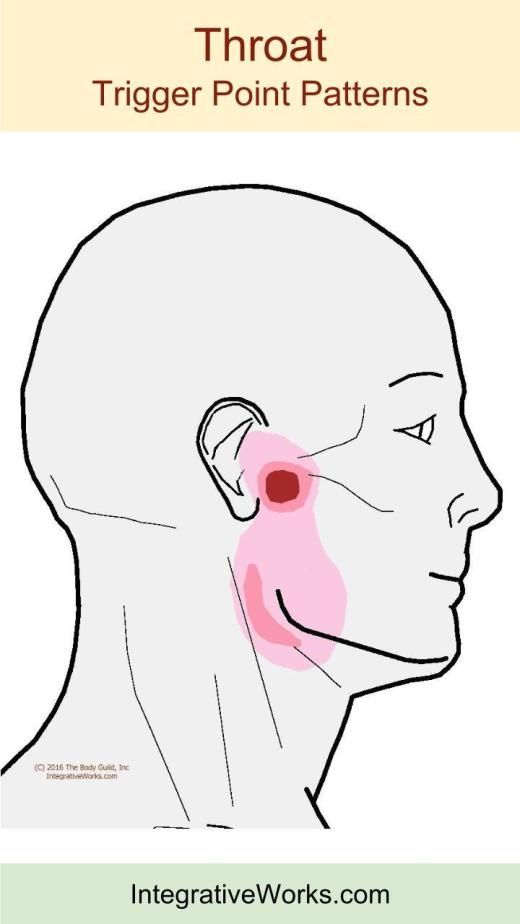Sinus Pressure And Earache

Sinus pressure and earache are two interconnected health issues that can cause significant discomfort and pain for those affected. The sinuses and ears are closely linked through the Eustachian tube, which regulates air pressure and drainage between the middle ear and the back of the throat. When the sinuses become inflamed or infected, it can lead to a buildup of pressure that radiates to the ears, resulting in earache. In this article, we will delve into the causes, symptoms, and treatment options for sinus pressure and earache, providing a comprehensive guide for those seeking relief.
Understanding Sinus Pressure
Sinus pressure occurs when the sinuses, which are air-filled cavities located in the skull, become inflamed or congested. This inflammation can be caused by a variety of factors, including allergies, colds, flu, and sinus infections. When the sinuses are functioning properly, they produce a small amount of mucus that helps to keep the nasal passages moist and clean. However, when the sinuses become inflamed, they can produce excess mucus, leading to congestion and pressure buildup.
The symptoms of sinus pressure can vary depending on the individual and the severity of the condition. Common symptoms include:
- Pain and pressure in the face, particularly in the cheeks and forehead
- Nasal congestion and stuffiness
- Yellow or green discharge from the nose
- Loss of smell and taste
- Headaches and facial tenderness
The Connection Between Sinus Pressure and Earache
The Eustachian tube, which connects the middle ear to the back of the throat, plays a crucial role in regulating air pressure and drainage between the two areas. When the sinuses become inflamed, it can cause the Eustachian tube to become blocked, leading to a buildup of pressure in the middle ear. This pressure can cause pain and discomfort in the ear, as well as affect the sense of hearing and balance.
The symptoms of earache caused by sinus pressure can include:
- Sharp or dull pain in the ear
- Feeling of fullness or pressure in the ear
- Hearing loss or muffled hearing
- Dizziness or vertigo
- Ringing or buzzing in the ear (tinnitus)
Treatment Options for Sinus Pressure and Earache
Fortunately, there are several treatment options available for sinus pressure and earache. These can include:
- Over-the-counter medications: Pain relievers such as acetaminophen or ibuprofen can help to alleviate pain and reduce inflammation. Decongestants and antihistamines can also help to relieve nasal congestion and allergies.
- Nasal irrigation: Rinsing the nasal passages with a saline solution can help to clear out mucus and debris, reducing congestion and pressure.
- Steam inhalation: Breathing in steam from a bowl of hot water or a steam humidifier can help to loosen mucus and reduce congestion.
- Antibiotics: If the sinus pressure is caused by a bacterial infection, antibiotics may be prescribed to help clear up the infection.
- Ear drops: For earaches caused by sinus pressure, ear drops can help to relieve pain and reduce inflammation.
Preventing Sinus Pressure and Earache
While it’s not always possible to prevent sinus pressure and earache, there are several steps that can be taken to reduce the risk of developing these conditions. These include:
- Practicing good hygiene: Washing hands regularly and avoiding close contact with others who are sick can help to prevent the spread of illness.
- Avoiding allergens: If you have allergies, avoiding exposure to allergens such as pollen, dust, and pet dander can help to reduce the risk of sinus pressure and earache.
- Staying hydrated: Drinking plenty of fluids can help to keep the nasal passages and sinuses moist and functioning properly.
- Using a humidifier: Adding moisture to the air with a humidifier can help to prevent dryness and irritation in the nasal passages and sinuses.
Case Study: Sinus Pressure and Earache in a Real-World Scenario
A 35-year-old woman, who we’ll call Sarah, had been experiencing recurring sinus pressure and earache for several months. She had tried over-the-counter medications and nasal irrigation, but the symptoms persisted. After visiting an ear, nose, and throat (ENT) specialist, Sarah was diagnosed with a deviated septum, which was causing her sinus pressure and earache. The specialist recommended surgery to correct the deviated septum, which Sarah underwent. After the surgery, Sarah experienced significant relief from her sinus pressure and earache, and was able to breathe and hear more easily.
FAQ Section
What are the most common causes of sinus pressure and earache?
+The most common causes of sinus pressure and earache include allergies, colds, flu, and sinus infections. Other causes can include a deviated septum, nasal polyps, and other anatomical abnormalities.
How can I relieve sinus pressure and earache at home?
+There are several ways to relieve sinus pressure and earache at home, including using over-the-counter medications, practicing nasal irrigation, and inhaling steam from a bowl of hot water or a steam humidifier.
When should I seek medical attention for sinus pressure and earache?
+You should seek medical attention for sinus pressure and earache if your symptoms persist or worsen over time, or if you experience severe pain, fever, or difficulty breathing. It's also important to seek medical attention if you have a weakened immune system or are taking medications that suppress the immune system.
Can sinus pressure and earache be prevented?
+While it's not always possible to prevent sinus pressure and earache, there are several steps that can be taken to reduce the risk of developing these conditions. These include practicing good hygiene, avoiding allergens, staying hydrated, and using a humidifier.
What are the potential complications of untreated sinus pressure and earache?
+The potential complications of untreated sinus pressure and earache can include chronic sinusitis, hearing loss, and meningitis. It's essential to seek medical attention if you experience severe or persistent symptoms.
How can I manage sinus pressure and earache in the long term?
+To manage sinus pressure and earache in the long term, it's essential to work with your healthcare provider to develop a treatment plan that addresses the underlying causes of your symptoms. This may include medications, lifestyle changes, and surgical interventions.
Conclusion
Sinus pressure and earache are interconnected health issues that can cause significant discomfort and pain. Understanding the causes, symptoms, and treatment options for these conditions is essential for finding relief. By practicing good hygiene, avoiding allergens, staying hydrated, and using a humidifier, you can reduce the risk of developing sinus pressure and earache. If you experience persistent or severe symptoms, it’s essential to seek medical attention to prevent potential complications. With the right treatment and self-care, you can manage sinus pressure and earache and improve your overall quality of life.
